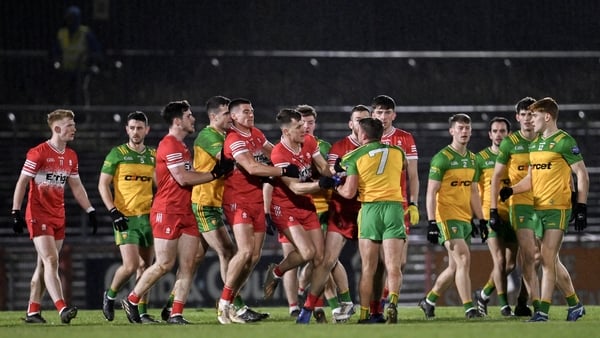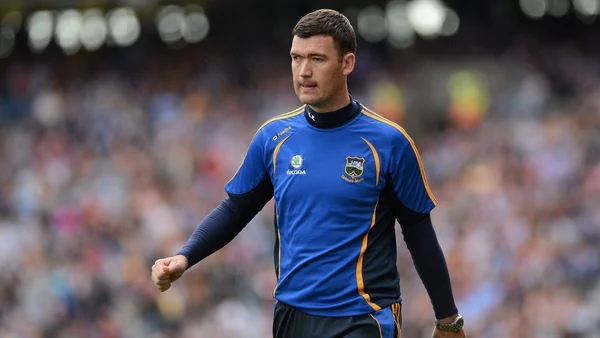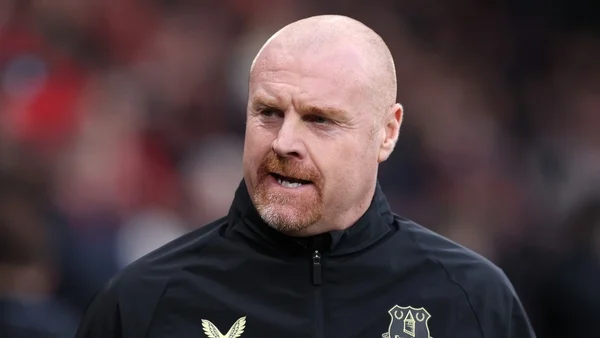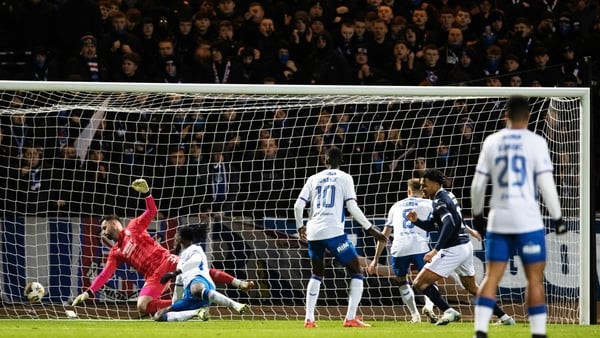The pre-season competitions have been laid to rest but interest in the weekend's challenge match fare was nonetheless intense.
Partly this was due to the postponement of the All-Ireland club semi-finals, which would have hogged much of the limelight. Even more of it was attributable to curiosity over the new rules in Gaelic football, which will dominate commentary for months to come.
The sheer length of the inter-county off-season may also be in the mix, further whetting the appetite when the new year rolls around.
The pre-season competitions, long proposed for the chopping block, were suspended - in the end, somewhat abruptly - last September after determined lobbying from the Gaelic Players' Association.
In Ulster particularly they are still grieving the loss of the famous Dr McKenna Cup and their administrators are not taking it lying down. It was the ultimate testament to province's rabid intensity around Gaelic football that their pre-season competition attracted total gates of 30,000 and generated special pull-out supplements in the Irish News.
We'll never know how close the College of Irish Psychiatrists came to designating 'McKenna Cup fever' as a legitimate psychological condition. Gaelic Games followers in the other three provinces didn't pay so much attention to the McKenna Cup other than to marvel at the size of the crowds and to notice that Mickey Harte's Tyrone always seemed to win it.
The Ulster Council expressed their surprise and disappointment at the axing of the pre-season competitions in a relatively diplomatic statement last September. Now that January is upon us, they have ramped up the rhetoric, with Ulster GAA secretary Brian McAvoy explicitly calling for them to be restored to "their rightful place" in 2026.
Cavan put forward a motion to rescind the postponement of the pre-season competitions in 2025, hotly opposed by the GPA, which fell just short of the 60% threshold.
In Connacht, they likewise take a dim view. Provincial secretary John Prenty said that between the loss of FBD's sponsorship, the (relatively modest) gate receipts and the far more lucrative streaming service, Connacht would be down €105,000 as a result of the abolition. The availability of the famous dome in Bekan, which in recent years had hosted all FBD League games, meant they weren't dependent on the weather gods.
In Leinster, the suspicion is they must have been more lukewarm.
The 2023 O'Byrne Cup had infamously descended into a complete shambles, with Carlow, Louth, Kildare and Offaly all offering walkovers, the latter two doing so in the knockout phase. The same trio of factors - sickness, injuries and Sigerson - were cited by the counties in the aftermath.
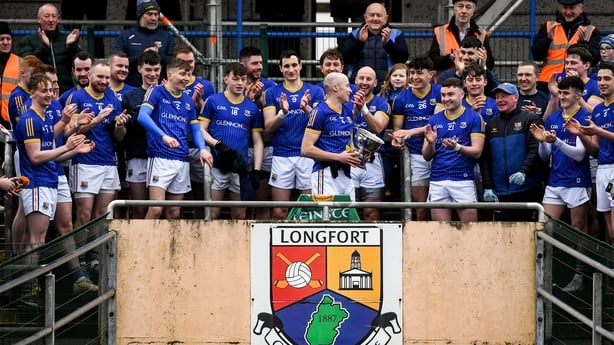
At the time, the Leinster Council issued a statement admitting the "integrity of the competition had been diminished" and that "in the future, counties would have to give serious consideration to their fixture schedule before committing to participating."
Longford then can still be referred to as 'reigning back-to-back O'Byrne Cup champions' and will be for the rest of eternity, if they so wish, barring any restitution of the competition in the future.
And so, in the absence of the McKenna Cup/ FBD et al, the humble aul' challenge match comes back into vogue for the first three weeks of January.
In international football, they've introduced the Nations League, in part to reduce the amount of friendlies. In the GAA, meanwhile, they're providing more space for them.
For many, the distinction between a series of challenge matches and a pre-season competition in which the result hardly matters is a fairly slight one.
If the GAA were in mischievous mood and inclined to troll certain rival sports - which would play well among elements of the base - they could re-brand the festival of challenge matches as the 'January series'.
God knows, Kildare have gone so long without a win of any sort against Galway, that when they do manage it, they could probably release a celebratory DVD at this stage. (To give an idea, the last time they beat the westerners in league or championship, Larry Tompkins was on the frees.) Saturday brought no luck in that regard, mostly thanks to Paul Conroy's accuracy outside the arc.
If the GAA were in mischievous mood and inclined to troll certain rival sports - which would play well among elements of the base - they could re-brand the festival of challenge matches as the 'January series'.
There was a sizable home crowd packing out the new stand in Newbridge and, according to all reports, they had a tangible impact on events on the pitch, frequently alerting David Gough to the fact that Galway had breached the 3v3 rule in attack, resulting in three Kildare points from tap-over frees.
Over in Castlebar, where Monaghan beat Mayo by two points, there wasn't a single two-pointer scored, with the hosts dropping 10 efforts short. Rory Beggan was especially active out the field in attempting to exploit the possible 12v11 wrinkle, with Mayo at one stage conceding a gimme free as they breached the 3v3 rule when trying to track him.
The challenge match has a special place in GAA lore, offering plenty of scope for rumour and misdirection, as well as skullduggery.
The most infamous challenge match of the modern era occurred between the last two All-Ireland champions, Dublin playing Armagh in a game in DCU in early summer 2015, in which Davey Byrne suffered a facial injury.
This set the scene for a famous comic setpiece, in which Jim Gavin robotically straight-batted Colm Parkinson's questions about the matter, the most on-the-nose (no pun intended) demonstration of Dublin's buttoned-up media strategy under that regime.
A video of the incident did exist though it was kept tightly under wraps and only made available to the disciplinary authorities, who eventually handed out fines to both counties.
One upside of the switch to ad-hoc challenge matches for January is that they provide the potential for more varied match-ups, traversing the county boundaries.
However, Prenty cited this as a negative, highlighting the cost factor and extra travel time - "they will be driving all over the country whereas in our situation we gave them a structured programme."
Officially, the pre-season competitions are only suspended for one year, though the GPA are currently adamant that they shouldn't return to what is an already cluttered calender, with the Sigerson and Fitzgibbon Cups in full swing and the league looming down the tracks.
January's festival of ad-hoc challenge matches is likely here to stay, though after a year's worth of competitive fixtures under the new rules, the public's interest may have abated.
